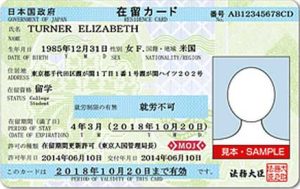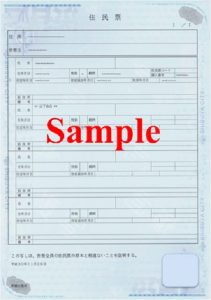So you moved to Japan, now what?
When I moved to Japan in early 2025, I thought I was prepared but I was wrong. It was a lot more complicated and involved than I initially thought. This guide aims to provide you the insights I wish I knew before moving to Japan.
1. Get the Right Visa and Zairyu Card
Luckily I skipped this step because I’m half Japanese and have citizenship (thank you Mom!). But if you aren’t Japanese, you’ll need a visa that matches your purpose for staying in Japan. Common options include:
Work Visa (engineer, teacher, skilled labor)
Spouse or Dependent Visa
Student Visa
Business Manager Visa (if starting a business)
Long-Term Resident or Permanent Resident (with proper eligibility)
Tourist Visa – Short-term stays (not valid for working)
Note: You cannot legally work in Japan on a tourist visa.
Start your visa application through the nearest Japanese embassy or consulate. Processing times can take several weeks, so apply early.
You’ll get your zairyu card at major airports like Haneda, Kansai, and Narita after passing through immigration.

2. Secure Housing
If you’re not buying a home yet, you’ll likely need to rent. You’ll most likely need to be in Japan before you can find a long term rental so I recommend staying in a hotel, AirBnb, or share house for the first 2-3 months. Finding a long term rental was by far the hardest challenge I had to overcome when I arrived so make sure to give yourself enough time to find a place. Landlords are notorious for not allowing foreigners to live in their properties but guarantor companies are the final boss. If you don’t speak fluent Japanese, don’t have any ties to Japan, or are a freelancer – good luck. You can do it – but it won’t be easy.
Here’s what I wish I knew before trying to rent an apartment
- February to April is the hardest time to find an apartment because most people in Japan move during this time.
- Find an English speaking realtor. You can find them online at websites like https://suumo.jp/ and https://www.athome.co.jp
- Some landlords won’t rent to foreigners. Accept it and move on.
- You may be denied if you can’t speak fluent Japanese. Guarantor companies might want to interview you as part of the application process. If you can’t answer their questions, they may deny you.
- If you’re a freelancer or have inconsistent income, you’re basically unemployed in the eyes of most landlords. Keep trying but if you can’t find something, UR is an option.
- UR doesn’t require key money or guarantor companies. As long as you have 1 years worth of rent and 2 months deposit – you’re set. Even if you don’t have a job.
- Not all landlords ask for key money or deposits. I’d recommend focusing on apartments that don’t charge these fees to save money.
- Newer buildings do not necessarily mean peace and quiet. I live in a brand new building and I can hear my neighbor talk, watch TV, and play video games.
3. Register Your Address at City Hall
Once you’ve moved into your short term housing, you must register your address at your local city/ward office within 14 days of moving. Not all hotels or AirBnb hosts will consent to this so be aware of this. However most share houses make you sign a monthly lease so you shouldn’t have any problems registering your address.
Head to your local city hall/ward office and bring:
Your Residence Card (zairyu card)
Passport
Housing lease or proof of address
You’ll receive a document called the jūminhyō (resident record), which is needed for banking and phone contracts.

You can also enroll in health insurance, set up your pension, and get a my number card.
Japan has two main health insurance systems:
Shakai Hoken (Social Insurance) – for full-time employees at Japanese companies
Kokumin Kenko Hoken (National Health Insurance) – for freelancers, students, or unemployed individuals
Monthly costs are income-based, and coverage is excellent: typically, you pay only 30% of medical bills.
Shortly after moving, you’ll receive a My Number notification by mail — a 12-digit number used for taxes, social security, and more.
You can (and should) apply for the plastic My Number Card, which serves as an official ID and allows easier access to public services.
4. Set Up a Phone Plan
Now that you have a registered address in Japan, you can get a Japanese phone number. Most people think you need a Japanese bank account to get a phone plan but this isn’t true in my experience. You can pay using any Visa or Mastercard. One thing to note – minutes and text messages aren’t included. Most people in Japanese use Line to make phone calls and text. You can use any data based messaging app like WhatsApp or Messenger to avoid paying for texts and calls.
Popular mobile providers:
Major: Docomo, au, SoftBank
Budget: Rakuten Mobile, Y!mobile, UQ Mobile, IIJmio
You’ll also need:
Passport
Residence Card
Local address
Bank or credit card info
5. Open a Bank Account
Now you have a registered address and a phone number, you can get a Japanese bank account. Opening a bank account can be tricky for newcomers. Some popular banks that support non-Japanese speakers include:
Japan Post Bank (Yūcho)
Shinsei Bank
Rakuten Bank
Sony Bank
You’ll need:
Your Residence Card
Personal seal (inkan/hanko – often required)
Phone number and Japanese address
TLDR, first get a visa and zairyu card. Second, find temporary housing for 2-3 months. Third, register your address at the local city/ward office and set up health insurance, pension, and my number card. Fourth, get a Japanese phone number. Fifth, get a hanko/inkan. Sixth, open a Japanese bank account.
